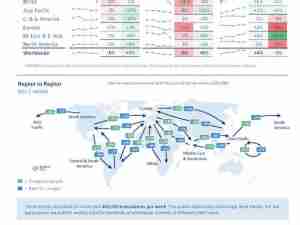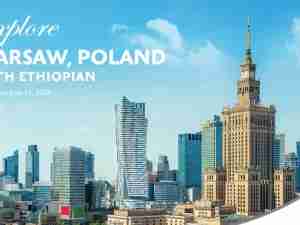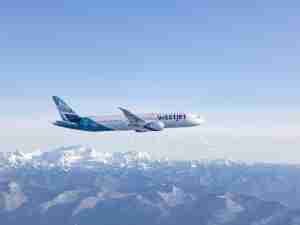Air France-KLM sees profit boost from new strategic plan
By: Reuters | Sep 14 2014 at 01:12 PM | Air Cargo
Air France-KLM pledged to lift core earnings by up to 10 percent a year through 2017 as part of a new strategic plan combining an assault on the European leisure market with efforts to improve its appeal to long-haul travelers.
Europe's second largest network carrier, facing a double threat from European low-cost rivals and fast-growing long-haul carriers in the Gulf, said the new 'PERFORM 2020' package would include a mixture of restructuring and new investment.
It comes on top of its Transform 2015 turnaround plan, which Air France-KLM said was on course to deliver more than 1 billion euros ($1.29 billion) in savings.
The new plan calls for further reductions in unit costs of 1 to 1.5 percent a year, maintaining the average pace of cuts in 2012 to 2014, according to slides presented to investors.
Shares in the Franco-Dutch group rose two percent on the proposals, which went further than some analysts had expected.
Traders in Paris said the airline had been expected to slow the pace of cost reductions, but that it remained vulnerable to the progress of labor negotiations.
The targeted increase in core earnings - measured as earnings before interest, tax, depreciation, amortization and aircraft rental payments (EBITDAR) - also beat some forecasts.
Despite delivering on previous targets, Air France-KLM says more belt-tightening is needed to confront low-cost rivals easyJet (EZJ.L) and Ryanair (RYA.I) in Europe, while trying to compete against fast-growing Gulf carriers on longer routes.
Air France-KLM said it would invest in improved products and services for long-haul networks and boost the performance of its hubs, while revamping its short- and medium-haul operations and expanding its low-cost unit, Transavia.
Transavia Overhaul
By 2017, Transavia will have a fleet of 100 jets, up from 41 reported at the end of 2013, and start using foreign bases that French media have speculated will include cities in Germany and Portugal. Transavia flies mainly Boeing (BA.N) 737s.
The first phase of Transavia's overhaul will be funded by 339 million euros raised from the partial sale of a stake in travel technology firm Amadeus this week.
Transavia's expansion to more than 20 million passengers a year by 2017 - up from 9 million last year - will contribute 100 million euros of additional EBITDAR in that year.
The company aims to lift Transavia out of the red from the following year after paying for 5-10 new bases to be set up outside its home markets, France and Netherlands.
Air France-KLM said it would also create a single business unit for the point-to-point activities under its own brand and that of regional subsidiary HOP!.
Chief Executive Alexandre de Juniac said the overhaul would lead to a "significantly improved risk profile" for the group.
However, its management faces a potential backlash from unions, with pilots already preparing to strike next week.
Air France-KLM also pledged to keep a tight lid on debts.
It aims to keep its net debt at below 2.5 times core earnings from 2017, compared with a ratio of 4.2 in 2013.
To support this, the airline said it would lease a larger proportion of its fleet and that it had the flexibility to shed up to 50 aircraft from its balance sheet over 6 years under its contracts with planemakers.
Air France-KLM told investors it aimed to bring its cargo unit back to breakeven in 2017 under plans, already announced, to cut back the fleet of all-cargo planes and rely more heavily instead on the bellies of passenger jets to transport freight.But it said it was ready to make acquisitions to support the growth plans of its maintenance division, which it expects to generate 50-80 million euros of additional EBITDAR in 2017.
It said its overall targets were consistent with a return on capital employed (ROCE) of 9 to 11 percent in 2017. This compares with 3.2 percent reported by the group for 2013, which has been revised to 2.9 percent under a new calculation method. (Reuters)






